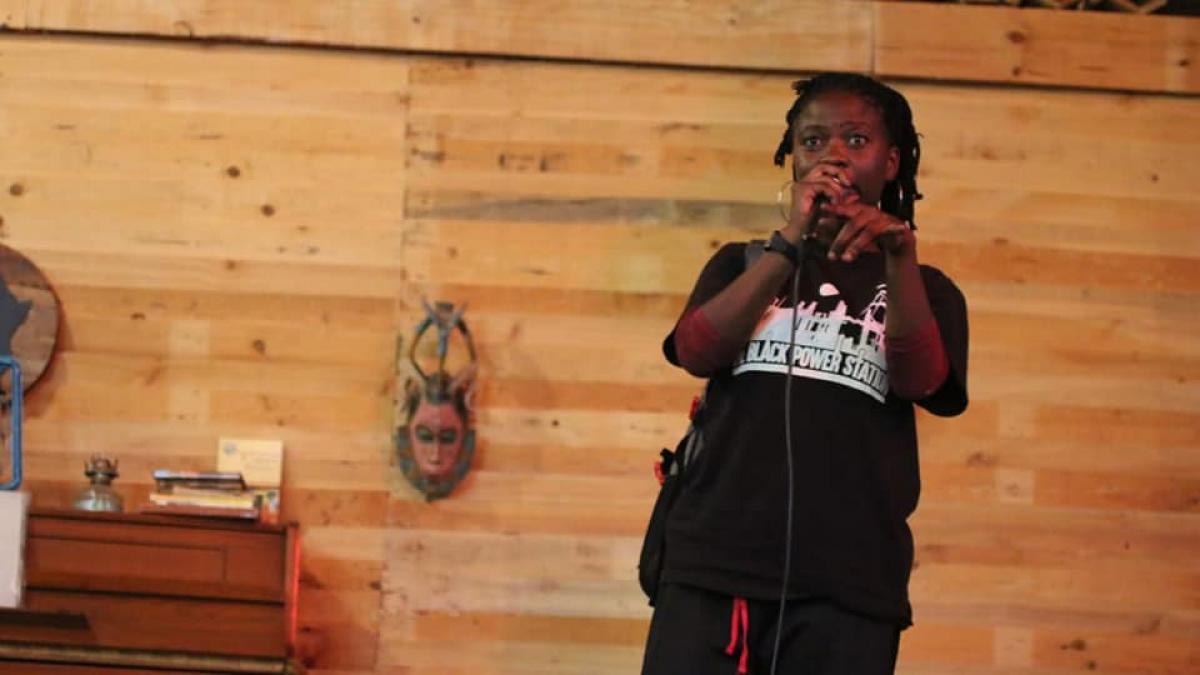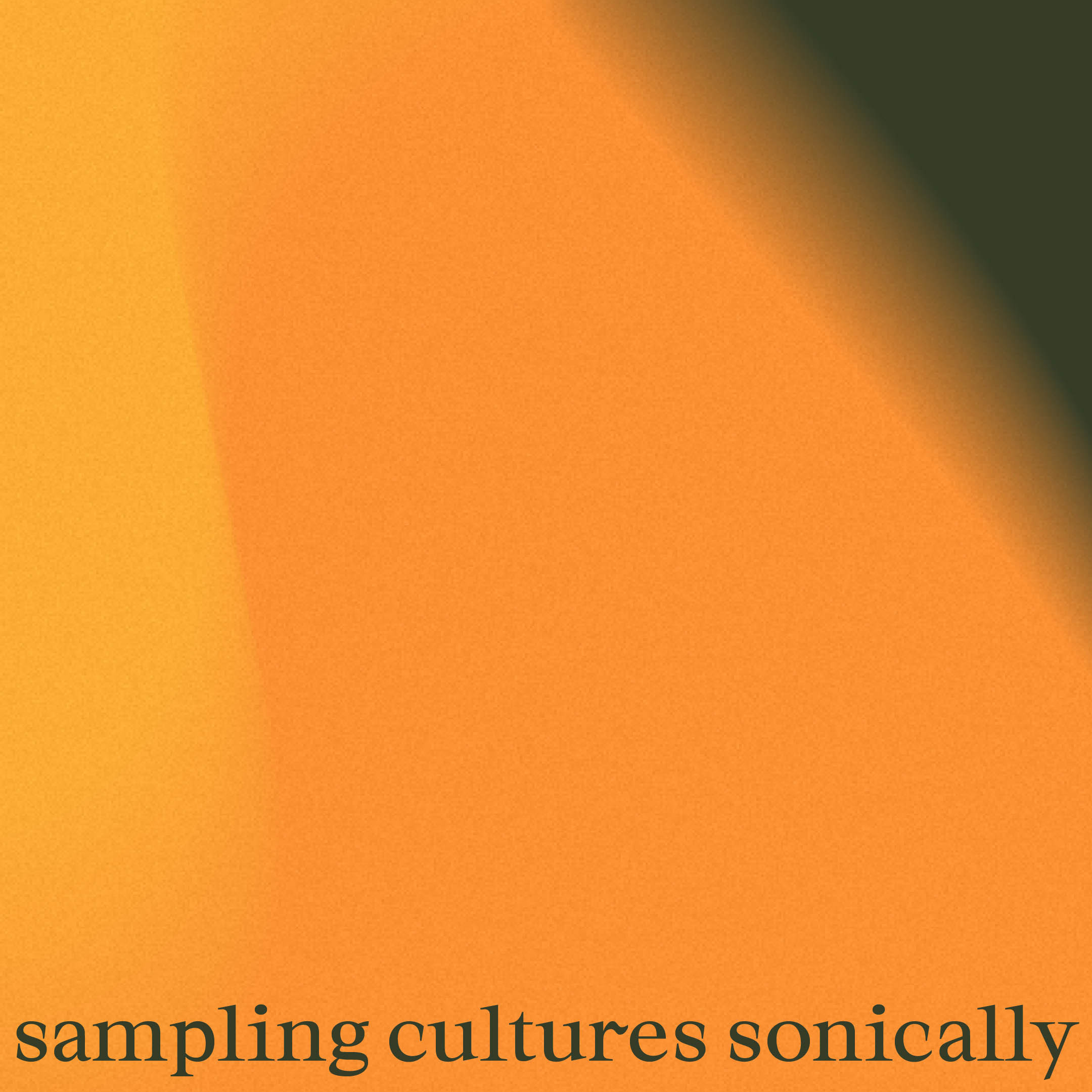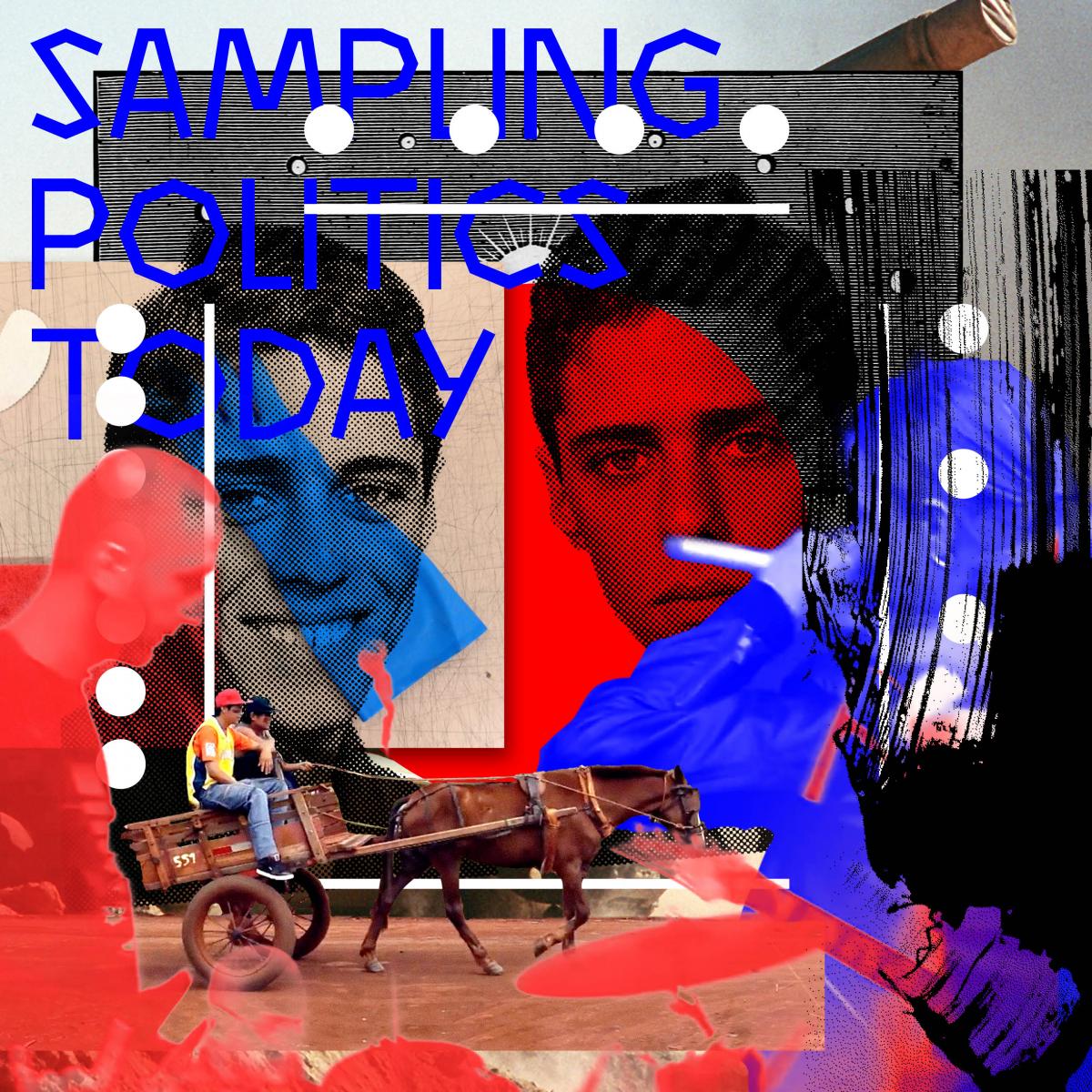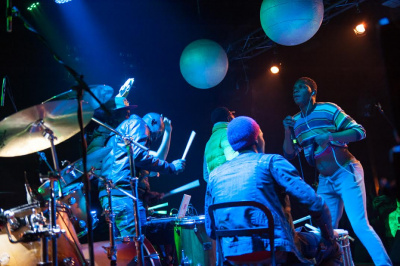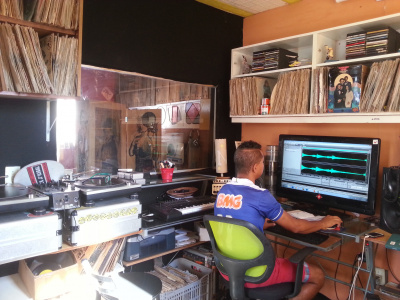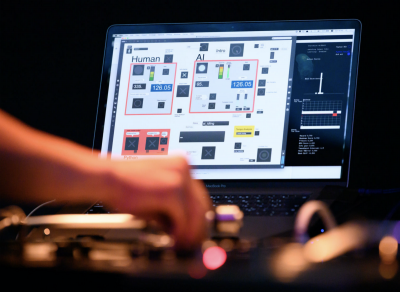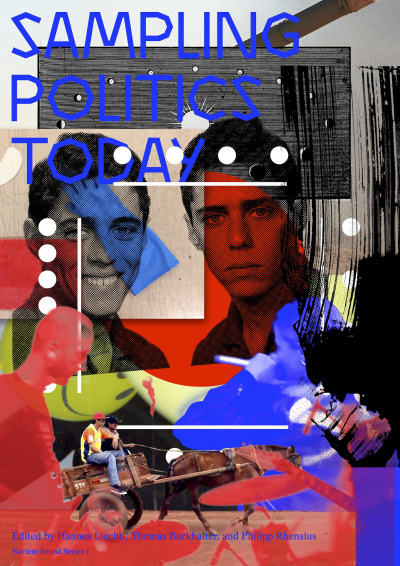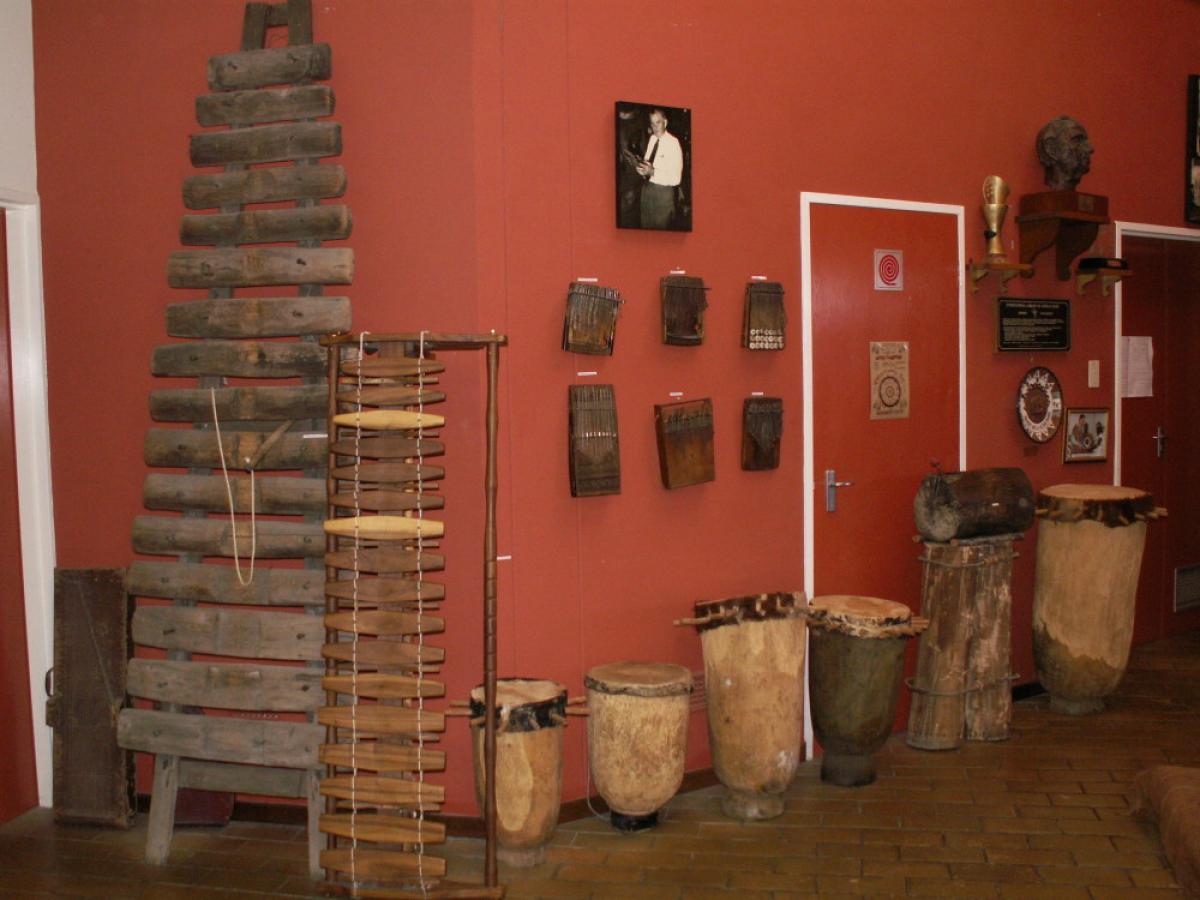As a practice performed by human beings, music is connected to politics in manifold ways. One way of bringing the political into music is the technique of sampling. With this method, music producers take sound snippets from external sources and incorporate them into new musical compositions. In this first issue of the Norient Sound Series, we examine how political contexts of our time are transformed into musical production. Among many further accounts, we follow the sampling of car horns in Indonesia, read about an Italian refugee project that uses smartphones as sampling resources, and reflect on ethical questions such as: Can one sample sounds of war? With case studies from all around the world, this Norient Special approaches sampling as a tool for critical thought and a way of alternative storytelling.
→ Check all articles of this special
→ Download PDF with introduction and table of contents
The production method of sampling has become a lingua franca for artists all around the globe today. Musicians and producers sample instruments, field recordings, media materials, and previously-released music in tracks and performances. In doing so, they transform and play with the meaning(s) of these source materials. Sampling a particular U.S. folk religious tradition such as Sacred Harp, for example (see article by Vika Kirchenbauer), can hardly be a neutral and exclusively aesthetic act. Rather, this process entails political thoughts, obvious and hidden messages, and it could provoke further debate.
But before completely stepping into the field of investigation, I should probably define what we understand when talking about «sampling». Neither among music producers and music journalists, nor among music researchers, is there consensus on this issue. On the one hand, sampling is understood as the act of (digitally) working with alien musical or non-musical (sound or media) material in order to compose/produce a larger piece of music. Most of the authors in this publication follow this narrow and concise definition, however, others such as Eduardo Navas or Vinícius Fernandes understand sampling in a much broader sense as a method of cultural creation. For them, sampling is not necessarily based on a concrete musical work, but refers more generally to the act of processing snippets of creative work in cultural production. The general vagueness in defining sampling is thus also represented in this publication.
The Political: A Signifier of the Social
There is a second term for which a concise definition is challenging: the political. In literature about music, «the political» is often not defined at all and it is presupposed that the readers know exactly what «political» means. This publication follows a broader understanding of «the political» as a signifier of the social. Music or musical elements such as samples can be perceived as «political» if they discuss socially relevant issues, or if they at least point to them. According to professor of political analysis Colin Hay, these issues are debated (and deliberated) by particular actors within society with a measurable effect for a specific group of people (Hay 2007, 65). It is thereby not crucial whether the musical producers themselves can be considered as political actors or not.
Both areas – the political and sampling – potentially clash in many ways. By editing this publication and as a result of my own research on sampling, I observed at least seven relevant dimensions. In combination, they illustrate the socio-political potential of sampling. In the following, these dimensions are introduced as well as the articles of this publication.
(a) Sampling Political Material
The processing of political sound material is a common strategy in popular music. Especially in hip hop, samples from Black political leaders and activists such as Malcolm X, Martin Luther King Jr., or Stokely Carmichael became «commonplaces» as professor of English and media studies Russel A. Potter asserts (1995, 43). This strategy further includes the processing of other political sound material such as police sirens or gunshots that are popular in various fields from hip hop and dancehall to recent experimental electronica (Amobi 2015).
A considerable number of articles in this publication deal with the sampling of political material. Thereby, voice and speech form a key aspect of interpretation. Lola Baraldi presents a survey of the sampling of political speech across dance music. She looks for strategies that go beyond the well-known modes of social commentary and denunciation, and is interested in forms of sampling that often take the shape of danceable satire such as mockery, collage, or comic juxtaposition. Baraldi asks about the aims, motivations, and intentions behind particular sampling strategies. This is a crucial question that has often been overlooked in literature on sampling (Liechti 2019, 11–12).
Another overview is provided by Audio Pervert, who presents various political sampling approaches from Indian producers, ranging from militancy to pure aestheticization. He votes for considering political sampling as an artform in itself.
Meanwhile, Francesco Fusaro does the self-test: He reports on the making of a track that samples the voice of American Congresswoman Alexandria Ocasio-Cortez (AOC). Fusaro argues that it is «through the voice that dance music has proven a fertile territory for the expression of the political and social concerns that underpinned its history from the very beginning». Fusaro shows that it does not only matter what is sampled but also in which genre it is sampled. Other authors dealing with the sampling of voice are Liam Thomas Maloney (Islamic sonic materials), Chris McGuinness (Punjabi singer Sohan Lal), and Marcel Zaes (finely-shredded bits of self-recorded voice). These three articles cover further dimensions of political sampling discussed below.
The first political sampling strategy is also present in Nicolas Puig’s ethnography of the sampling of the work of Palestinian musician Osloob. Among other sounds, the rapper uses bits from news bulletins on particular events in the history of the Palestinian people. Therein, Puig argues, Osloob’s music is «a prism that refracts space and time, articulating the artistic and the aesthetic with the political by integrating sounds from long ago and from far away». Lastly, Luis Velasco-Pufleau addresses one of the most controversial sampling sources: In his text on Matthew Herbert’s album The End of Silence he discusses the political implications and ethical concerns of sampling sounds of war.
(b) Sampling with Political Intent
If the sampling material is not political as such, it could be used in combination with intentions or concepts that are political in nature. Prominent examples would be John Oswald’s Plunderphonics (1988) or Den Sorte Skole’s Lektion III (2013). Both projects combine a broad number of not explicitly political samples from foreign musical recordings to «challenge the existing laws and the music business» (Den Sorte Skole cited in Lund 2015).
Political intentions behind processes of sampling are covered and discussed in the aforementioned pieces by Nicolas Puig on Lebanese rapper Osloob, Lola Baraldi on the sampling of political speech (she analyzes satire as a form of activism), and Francesco Fusaro on the making of his track «Ain’t Nothing Wrong (with AOC)». Furthermore, Liam Thomas Maloney reflects on the sampling of religious materials in house music and considers sampling as a «technique that articulated the history of marginalized communities». In another article on experimental club music, Giuseppe Zevolli demonstrates that sampling is still used in similar ways these days among queer circles. Finally, multi-disciplinary artist Vika Kirchenbauer explains her own way of sampling with political intentions. In her article «Complicating Critique» she discusses the effects of changing relationships by the producers towards the sampled material over the course of the production process.
Two articles deal with the particular political situation in present-day Brazil. Henrique Souza Lima samples the word «apesar» (in spite) from a famous Brazilian protest song from the era of Brazilian military dictatorship. By doing this, he establishes popular song in general as a «platform for critical thinking on the current information war and the ghostly return of ultra-conservatism in Brazil». Souza Lima understands sampling as a critical act and an «escape route» within the «dialectical duality between oppression and resistance». Together with his colleague Cristiano Figueiró, he further reports on one of their own app-based remix projects, which aims to spread the heritage of the rich Afro-diasporic musical culture of côco. (Two more articles by the Laura Collective and Michel Brasil extend these perspectives into a small but diverse focus on Brazilian sampling contexts within this publication.)
To end, Guy Baron shows how abstract (political) concepts such as the ones of temporality and retrospection could be addressed through the lens of electronic music production. As in all other categories, sampling strategies do not need to be obvious for the listener. Many processed samples or intentions behind the respective sampling processes – such as Baron’s underlying concept – remain hidden.
(c) The Problematization of Sampling Strategies
The processing of foreign sound material has always (and continues to) stoke controversy among scholars, journalists, and fans. In most cases, they criticize an imbalance of power between the sampling artists and the actors of the sampled sources. In research up to date, the processing of ethnographic sound recordings in particular is criticized by many authors such as Timothy Taylor: He observes that «one of the ways Westerners appropriate other music is to construct the original makers of that appropriated music as anonymous» (Taylor 2003, 73).
In this publication, ethical questions on sampling strategies are raised by several authors. Harry Edwards and Noel Lobley start with discussing the Beating Heart Project. The aim of this initiative was to fund beneficial projects across Africa by selling original and remixed electronic dance music containing samples from the International Library of African Music (ILAM) in Grahamstown, South Africa. While Edwards reflects critically on the project’s colonial roots, Lobley affirms the idea of a sustainable sampling in community-based networks.
Imbalanced relations of power become obvious themes in other articles as well. Chris McGuinness explores the story of Punjabi singer Sohan Lal, whose voice ended up on a globally-distributed compilation containing a sample library of South Asian sounds. His voice found its way into a few mainstream productions of electronic dance music, as did samples from Indonesian car horns called «om telolet om». Luigi Monteanni analyzes this phenomenon as part of a local youth culture. He problematizes the global use of these samples in-between the benefits of recognition and the discriminatory structures of Orientalism. Using samples, Monteanni argues, is far from being a harmless practice. In another article, this awareness is summarized by electronic music producer Eomac as the outcome of a personal learning process. In his testimonial, he reflects on his own evolution as an artist, starting with using any sound available, and ending up as an experienced musician, confronted by complex ethical questions. Finally, he asks the big question: «Should we sample foreign sounds at all»?
Still concerned with power relations, the Laura Collective asks to what extent sampling practices maintain or disrupt an exoticized ideal of indigenous populations. The Brazilian research collective compares the example of a worldwide EDM artist who repeats the clichés of exotizing cultural appropriation through sampling, with an indigenous rap group who use cultural sampling «to occupy the Western visibility regime as a way to express and make their own narratives heard».
Finally, ethical questions are raised by the aforementioned piece by Luis Velasco-Pufleau on Matthew Herbert’s sampling of a field recording of a bomb explosion from the Libyan civil war.
(d) Provoking Conflict
In the previous dimension, sampling has become political because sampling practices are problematized as a result of a more or less thorough reflection of established power relations. This dimension now categorizes direct provocations of conflicts through the use of particular sound material. An example is the British techno DJ Dax J, who was sentenced to one year in jail after having sampled a Muslim call to prayer in a live set at a nightclub in Tunisia in spring 2017. Dax J had to immediately flee the country to avoid arrest. On social media, he later apologized for the incident, mentioning that «it was never my intention to upset or cause offence to anybody» (O’Connor 2017). This case is also discussed by Liam Thomas Maloney. He considers sampling as «a microcosm for political and ideological disparities across the globe» and argues that sampling has become a «politically charged act, trapped between secularism and theocracy». Despite its unifying history, sampling has become «a divisive process», he continues.
(e) Sampling in Politicized Contexts
Another encounter between sampling and the political occurs when non-political samples, or sample-based music devoid of any political intentions, are played in politicized contexts. One striking example would be the use of sample-based music as propaganda or within a political campaign. The meaning(s) of the sampled materials might change considerably in such contexts.
This publication features another example fitting of this category: Mattia Zanotti discusses an Italian music project that works with refugees. The project called Stregoni relies on the participant’s smartphones as individual sample libraries when improvising and realizing performances. Sampling, in this case, facilitates the creation of an attitude of community, and Zanotti asks whether the production method can even help to represent and recreate identity. This practice of sample-based music is political as it brings together refugees and native Italians and because it relies on the smartphone, both a symbol «mentioned with grievance by those who line up against immigration» and, on the other hand, a «strongbox that preserves identity» for the refugees.
(f) Sampling in Conflict with the Law
A sixth category collects sampling strategies that are neither processing political material, nor are they linked with a political intention. Instead, they are in conflict with the law because they process copyrighted samples without clearing the rights. There are countless examples for this political dimension of sampling, and literature has broadly covered this area. One example would be the German lawsuit between the electro pioneers Kraftwerk and the hip hop producer Moses Pelham, who had used a sample of two seconds from a Kraftwerk track in one of his productions (DW 2018; Ismaiel-Wendt 2016, 171–84; Fischer 2020). This publication only briefly touches upon this area. Issues of copyright are discussed in the articles of Chris McGuinness on Punjabi singer Sohan Lal and Noel Lobley on the South African ILAM archive.
A third article by Michel Brasil portrays the sampling practice of underground beatmakers in the local hip hop scene of Belo Horizonte, Brazil. He shows that the option for using the technique of sample chopping is both economic and political, since producers are forced to chop samples due to copyright issues. Brasil describes what Georg Fischer calls «Umgehungskreativität» (creativity of bypassing; Fischer 2020). According to Brasil, the use of samples in rap questions who owns a musical work and who is able to commercially exploit it. Obviously, this links back to the ethical questions raised in dimension (c) above.
(g) Sampling as a Political Act
A final perspective considers sampling on a meta level. It discusses sampling as a cultural technique, containing processes of selecting and combining creative material. This process could be considered political as such. Elements of this perspective can be found in various texts within Sampling Politics Today. However, there are three articles that predominantly focus on thoughts in this category.
When Marcel Zaes examines what he calls «textural sampling» by Japanese electronic artist Kyoka as political, he points to the fact that the producer blurs the lines between sample-based club music and synthesis-oriented experimental music by «destroying out-of-context materials, stripping them of their meaning, [and] rendering them extremely dense collages». In doing so, sampling would challenge listener expectations and value sets that are attached to the experimental or the popular music market. In Kyoka’s so-called «techno punk», Zaes sees the «subtle resistance of a conscious, self-designated outsider».
Vinícius Fernandes analyzes the cut-up technique, one of sampling’s predecessors developed by writer William S. Burroughs in the 1960s. «The reallocation and deformation of signs», that happens through cut-up, «produces a suspension of normal expected coherence» between these signs and the underlying medium. Fernandes understands sampling techniques as a «powerful weapon» and a political tool as it helps to produce a «political conscience» by suspending the «semiotic normality» and thus «uncovering the subjects operating perversely behind» particular signs. Fernandes argues that the cut-up method can be read as a premonition of 21st century phenomena like the Facebook-Cambridge Analytica scandal.
Lastly, remix researcher Eduardo Navas reflects on how automated and self-training forms of production are reshaping the creative possibilities in music and culture. His take on the politics of sampling in the age of machine learning invites us to extend our thoughts on the interplay of sampling and politics today to the future.
Sampling Pushes Critical Thought
As this introduction might have shown, the first issue of our new Norient Sounds Series called Sampling Politics Today assembles a broad collection of political sampling strategies. Underground hip hop beatmakers in Belo Horizonte, Brazil, Western mainstream EDM producers, or a Japanese experimental electronica artist: eachuse sampling for their own (political) purposes. The covered local contexts range from phenomena such as «om telolet om» in Indonesia or the musical Afro-diasporic heritage in Brazil to cultural projects for refugees in Italy or a large archive for South African music. Thus, sampling has definitely become a kind of lingua franca. But what might be a substantial cultural contribution of sampling beyond the mere possibilities it offers?
Some of the authors who appear in this publication share a similar idea on the benefits of sampling. Henrique Souza Lima, Lola Baraldi, and Luis Velasco-Pufleau all argue that sampling pushes critical thought. According to these authors, sampling offers a platform and an opportunity to critically think about and to examine issues of our world through the medium of sound, or, in the words of Baraldi: «alternative and sonic storytelling». These articles thus invite the reader to dive into these alternative narratives on the world.
